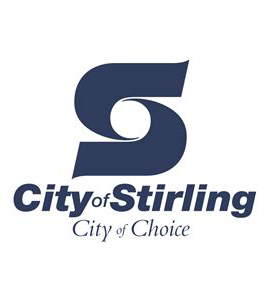Our journey
What council has achieved in the past in energy efficiency, renewable energy, sustainable transport or broader sustainability
The City of Stirling is the largest metropolitan local government by population in Western Australia and is recognised as Perth’s second CBD. The City has long demonstrated a commitment to measuring, tracking and reducing its energy consumption, energy costs and carbon emissions. The City produced an endorsed Local Greenhouse Action Plan in 2003 and reported on this until 2009. In 2010, Council endorsed the WALGA Climate Change Declaration and the City began publicly reporting on corporate energy consumption and carbon emissions via its Annual Report.
In 2021, the City council endorsed the Sustainable Energy Action Plan (Corporate) 2020 – 2030 to set targets and a clear direction to reduce carbon emissions and increase renewable energy use. The plan also aims to responsibly contribute to global efforts to limit the impacts of climate change in line with the Paris Agreement, and is consistent with our goal to be net zero by 2050. In this plan, the City has proposed a corporate target to source 100 per cent of total electricity demand from renewable energy by 2030. The City has also proposed a target to reduce corporate carbon emissions by 70 per cent by 2030.
Current projects to meet SEAP target by 2030
Renewable energy generation – Generation and usage of solar energy and geothermal heating have increased considerably over the last five years and now represents 13 per cent of total energy demand. Geothermal energy accounts for 10 per cent of total energy demand.
- Solar PV – The City has installed PV panels since 2015 and now has 12 systems connected. As of the 2019/20 financial year, the City’s solar PV systems provided eight per cent of the City’s total electricity demand, equivalent to three per cent of total energy demand.
- Geothermal heating – The city has installed and run the geothermal heating system at Stirling Leisure Centres – Scarborough Beach Pool since 2018.
Renewable Power Purchase Agreement – Aside from work being undertaken to install solar PV systems and other renewable energy systems, the City has most recently been working with WALGA to undertake a joint procurement with other local governments (LG) to meet our SEAP renewable electricity target.
Energy efficiency improvements
- HVAC – The City continues to improve building energy efficiency through LED lighting installations, upgrades to air-conditioning controllers and improved control strategies. The City upgraded heating, ventilation, and cooling (HVAC) systems at city buildings. In addition to this, the city conducted tuning and optimisation tasks for the systems.
- LED – The city has installed new efficient LED lights at city buildings including community centres and expect to save more than halving the energy used by these lights.
Sustainable Transport – The City installed a 22 kW electrical changer at Carpark at Scarborough beach pool. The City`s passenger car fleet (14 per cent of fleet emissions) comprises 50 per cent hybrid cars and the city has a plan to develop a business case for procuring electric vehicles.
Community Sustainability – Aside from working to reduce corporate emissions, the City also provides support to residents. As part of the Living Green program, the City conducted 118 home sustainability audits in 2019/20, to identify opportunities for residents to reduce energy and water bills through simple actions such as turning up the temperature on air conditioners in summer and improving soil structure and applying wetting agents to reduce water requirements of gardens. A further 27 residents borrowed the free home energy assessment toolkits (HEAT kits) available to conduct a DIY home sustainability audit. Since April 2020, the kits have been unavailable for the loan as they are being updated to increase their usability and accessibility.
Tree planting and carbon sinks – The City manages approximately 80,000 street trees and has an active program to plant around 10,000 trees per year. The City produced an iTree report in 2016 which showed that the City’s street trees sequester 807 tonnes of carbon per year and store 25,180 tonnes of carbon. By 2040, the City will likely manage an estimated 201,000 street trees and it is estimated that these will sequester 3,920 tonnes of carbon per year and store 75,174 tonnes of carbon.
What council hopes to achieve in the future in energy efficiency, renewable energy, sustainable transport or broader sustainability
The City aspires to go beyond its minimum requirements and aims to achieve the following target from a 2019/20 baseline reduce corporate carbon emissions by 70 per cent by 2030.
The City aims to source 100 per cent of total electricity demand from renewable energy by 2030.
What council hopes to gain from being a member of the Cities Power Partnership
The City of Stirling seeks opportunities to share knowledge, inspire ambitious actions and collaborate with other organisations to tackle the climate change issue.
